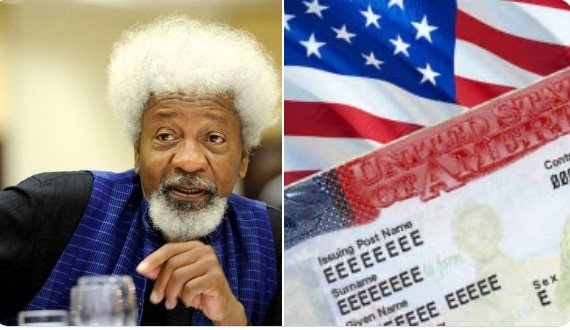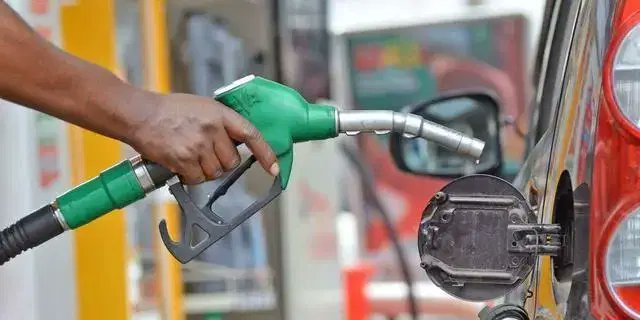President Bola Ahmed Tinubu has approved a 15 percent import duty on imported petrol and diesel, marking a major shift in Nigeria’s downstream petroleum sector policy. The decision, which has already stirred nationwide debate, is expected to reshape fuel pricing dynamics and the broader energy market in Africa’s largest economy.
The approval was communicated through an official presidential directive dated October 21, 2025, and addressed to key regulatory agencies including the Federal Inland Revenue Service (FIRS) and the Nigerian Midstream and Downstream Petroleum Regulatory Authority (NMDPRA). The new import duty applies to Premium Motor Spirit (PMS) — commonly known as petrol — and Automotive Gas Oil (AGO), or diesel.
According to credible sources within the Presidency, the measure forms part of ongoing fiscal reforms aimed at strengthening revenue generation, encouraging local refining, and aligning fuel import practices with Nigeria’s current economic realities.
Government’s Rationale for the Policy
The Presidency explained that the 15 percent ad-valorem duty on imported fuels is designed to promote national energy security and reduce the country’s dependence on imported petroleum products. The administration believes that encouraging local refining through tariff protection will not only conserve foreign exchange but also stimulate industrial investment in the oil and gas value chain.
Officials close to the policy decision said the move also aligns with Nigeria’s post-subsidy deregulation framework, which seeks to create a more competitive downstream market while protecting strategic local capacity.
A senior government source who spoke under anonymity noted that, “This decision is about balancing the energy ecosystem. For decades, Nigeria depended heavily on imports, losing billions in foreign exchange annually. Now that the country has functioning refineries coming on stream, the government has to ensure that local producers are not undercut by cheap imports.”
How the Duty Will Work
Under the new structure, the 15 percent duty will be calculated on the Cost, Insurance, and Freight (CIF) value of imported petrol and diesel. In practical terms, this means the tariff will be applied to the total cost of the products, including transportation and insurance, before they enter Nigeria’s domestic market.
Industry experts estimate that this could translate to an additional ₦99 to ₦150 per litre of petrol, depending on international crude oil prices, exchange rate fluctuations, and logistics costs. The impact on diesel is expected to be similar, as importers adjust to higher landing costs.
Analysts warn that, without careful regulatory coordination, this could push retail fuel prices upward, potentially increasing inflationary pressures at a time when Nigerians are already grappling with rising living costs and currency depreciation.
Protecting Local Refining Capacity
The policy is widely viewed as a strategic step to protect Nigeria’s emerging refining industry, particularly the Dangote Refinery and the Nigerian National Petroleum Company Limited (NNPCL) refineries, which are expected to meet a large portion of the nation’s fuel demand in the coming years.
President Tinubu has repeatedly emphasized his administration’s commitment to achieving energy self-sufficiency by supporting domestic production and refining. In recent months, the government has been working closely with private refiners to stabilize supply and reduce dependence on imported petroleum products.
By imposing the 15 percent import duty, the government aims to make locally refined products more competitive against imported ones, especially as Nigeria transitions from being a net importer to a net producer of refined petroleum products.
A top official in the Ministry of Finance stated that, “The ultimate goal is to make Nigeria’s refineries profitable and sustainable. When refineries are competitive, they create jobs, reduce forex demand, and keep more value within the economy.”
Economic Implications for Consumers and Businesses
While the policy is expected to boost domestic refining, it may also have short-term cost implications for consumers and small businesses. Higher import duties generally lead to increased pump prices, and transport operators could pass the extra costs to passengers and consumers.
The ripple effect may extend to the prices of goods and services nationwide. With diesel being a major source of power generation for industries, supermarkets, and small-scale enterprises, a spike in diesel prices could lead to higher production and logistics costs.
Experts warn that the timing of the policy could challenge households and small businesses still struggling with post-subsidy inflation. According to economists, the government may need to implement cushioning measures such as tax rebates, credit support for transporters, or targeted subsidies for strategic sectors to mitigate the immediate burden.
Dr. Bode Akinyemi, an energy economist, explained that “while the 15 percent duty is economically sound for the long term, the short-term pain could be intense. It will likely trigger another round of price adjustments across sectors unless offset by a significant increase in local fuel supply.”
Industry Reaction
Reactions from the oil and gas industry have been mixed. Independent marketers and importers expressed concerns that the policy could distort competition and favour major refineries with domestic production advantages.
An independent marketer in Lagos, who requested anonymity, said: “We understand the government wants to protect local refiners, but we should not be punished for importing products to fill supply gaps. Without full local production, this duty will raise costs for everyone.”
On the other hand, operators in the local refining and petrochemical space welcomed the policy, describing it as a long-overdue protection for Nigerian investments.
A source close to the Dangote Refinery commended the government’s move, saying it would create a level playing field and encourage investment in refining, petrochemicals, and allied industries.
“The refinery business requires stability and policy backing. If importers continue to bring in products at near-zero tariff rates, local refineries cannot compete. This duty ensures fairness and helps Nigeria move toward energy independence,” the source said.
Public and Political Reactions
The policy has also generated strong reactions from civil society, consumer advocates, and political stakeholders. Some groups have urged the government to delay implementation until domestic refineries are fully operational and capable of meeting national demand.
Labour unions have warned that the measure could “further squeeze the masses,” while the Manufacturers Association of Nigeria called for consultations to ensure that industrial competitiveness is not compromised.
Opposition lawmakers have also questioned whether the timing aligns with the government’s social welfare commitments. They argue that the Tinubu administration must ensure the policy does not exacerbate economic hardship, especially amid rising food prices and unemployment.
Long-Term Outlook
Despite the immediate controversy, economists say the long-term benefits of the policy could be significant if properly managed. By reducing reliance on imports, Nigeria can conserve billions in foreign exchange annually, stimulate industrial growth, and strengthen fiscal stability.
Analysts also predict that once domestic refineries achieve full operational capacity, fuel prices could stabilize or even decline, as supply becomes more consistent and market-driven. The policy could further attract foreign and local investors to the midstream and downstream sectors, spurring innovation and job creation.
However, experts stress that achieving these outcomes will depend on effective policy implementation, transparency in fuel pricing, and timely communication between government agencies, marketers, and consumers.
Conclusion
President Bola Tinubu’s approval of a 15 percent import duty on petrol and diesel marks a pivotal moment in Nigeria’s energy reform journey. It reflects the government’s determination to foster self-sufficiency and protect domestic refining, but it also raises immediate economic concerns for millions of Nigerians.
As the policy takes effect, all eyes will be on the Nigerian Midstream and Downstream Petroleum Regulatory Authority to ensure fair implementation, transparency, and minimal disruption to supply chains. The coming months will test how effectively Nigeria can balance reform-driven growth with the urgent need to protect citizens from further economic strain.
In the end, the success of this policy may depend not only on its fiscal logic but also on how it is communicated, managed, and cushioned — ensuring that the pursuit of national industrial progress does not deepen the struggles of ordinary Nigerians.














